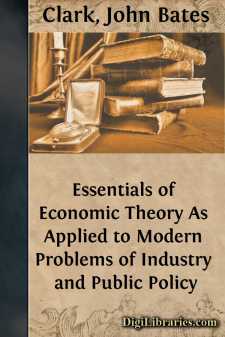Categories
- Antiques & Collectibles 13
- Architecture 36
- Art 48
- Bibles 22
- Biography & Autobiography 813
- Body, Mind & Spirit 138
- Business & Economics 28
- Children's Books 12
- Children's Fiction 9
- Computers 4
- Cooking 94
- Crafts & Hobbies 4
- Drama 346
- Education 46
- Family & Relationships 57
- Fiction 11821
- Games 19
- Gardening 17
- Health & Fitness 34
- History 1377
- House & Home 1
- Humor 147
- Juvenile Fiction 1873
- Juvenile Nonfiction 202
- Language Arts & Disciplines 88
- Law 16
- Literary Collections 686
- Literary Criticism 179
- Mathematics 13
- Medical 41
- Music 40
- Nature 179
- Non-Classifiable 1768
- Performing Arts 7
- Periodicals 1453
- Philosophy 64
- Photography 2
- Poetry 896
- Political Science 203
- Psychology 42
- Reference 154
- Religion 505
- Science 126
- Self-Help 81
- Social Science 81
- Sports & Recreation 34
- Study Aids 3
- Technology & Engineering 59
- Transportation 23
- Travel 463
- True Crime 29
Essentials of Economic Theory As Applied to Modern Problems of Industry and Public Policy
by: John Bates Clark
Description:
Excerpt
PREFACE
In a work on the "Distribution of Wealth," which was published in 1899, I expressed an intention of offering later to my readers a volume on "Economic Dynamics, or The Laws of Industrial Progress." Though eight years have since passed, that purpose is still unexecuted, and it has become apparent that any adequate treatment of Economic Dynamics will require more than one volume of the size of the present one. In the meanwhile it is possible to offer a brief and provisional statement of the more general laws of progress.
Industrial society is going through an evolution which is transforming its structure and all its activities. Four general changes are going on within the producing organization, and the resultant of them, under favorable conditions, should be an enrichment in which all classes would share. Population is increasing, capital is accumulating, technical methods are improving, and the organization of productive establishments is perfecting itself; while over against these changes in industry is an evolution in the wants of the individual consumer, whom industry has to serve. The nature, the causes, and the effects of these changes are among the subjects treated in this volume.
The Political Economy of the century following the publication of the "Wealth of Nations" dealt more with static problems than with dynamic ones. It sought to obtain laws which fixed the "natural" prices of goods and those which, in a like way, governed the natural wages of labor and the interest on capital. This term natural as thus used, was equivalent to static. If the laws of value, wages, and interest had at this time been correctly stated, they would have furnished standards to which, in the absence of all change and disturbance, actual values, wages, and interest would ultimately have conformed. The economic theory of this time succeeded in formulating, correctly or otherwise, principles of economic statics and a fragment or two of a science of economic dynamics, although the distinction between the two divisions of the science was not clearly before the writers' eyes. The law of population contained in the work of Malthus is the only systematic statement then made of a general law of economic change. Though histories of wages, prices, etc., furnished some material for a science of Economic Dynamics, none of them attained the dignity of a presentation of law or merited a place in Economic Theory. Students of Political Economy were at that date scarcely awakened to the perception of laws of dynamics, and still less were they conscious of the need of a systematic statement of them. A modest beginning in the way of formulating such laws the present work endeavors to make.
The first fact which becomes apparent when economic progress is studied, is that static laws have a general application and are as efficient in a society which is undergoing rapid transformation as in one that is altogether changeless. Water in a tranquil pool is affected by static forces. Let a quantity of other water rush in and there are superinduced on these forces others which are highly dynamic....



